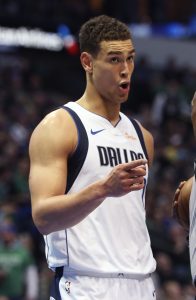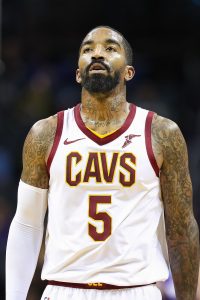Five Key Offseason Questions: New York Knicks
One of the NBA’s most iconic franchises, the Knicks have also been one of the league’s most dysfunctional in recent years. They’re set to enter a crucial offseason after having won between 17 and 32 games in each of the last five seasons.
Having been unable to put together a core of promising young building blocks during their on-again, off-again rebuild over those five years, the Knicks will rely on other assets to improve the roster during the summer of 2019. With a handful of extra future first-round picks in hand and more cap room available than any other NBA team, New York theoretically has the resources necessary to sign two maximum-salary free agents and acquire a third one in a trade.
After months of speculation about which players the Knicks might be able to actually land, we’ll get our answer in the coming weeks.
Here are five key questions facing the franchise this summer:
1. Will Kevin Durant sign with the Knicks?
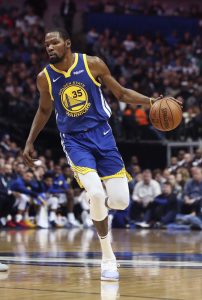 Durant himself has given no indication that he’s dead set on leaving the Warriors or that he has a specific destination in mind when he reaches the free agent market this offseason. But based on how the NBA rumor mill works, there’s a widespread belief that the Knicks are already preparing to print thousands of No. 35 jerseys for the 2019/20 season. Reports all season from outlets across the county have indicated that NBA insiders expect Durant to end up in the Big Apple.
Durant himself has given no indication that he’s dead set on leaving the Warriors or that he has a specific destination in mind when he reaches the free agent market this offseason. But based on how the NBA rumor mill works, there’s a widespread belief that the Knicks are already preparing to print thousands of No. 35 jerseys for the 2019/20 season. Reports all season from outlets across the county have indicated that NBA insiders expect Durant to end up in the Big Apple.
Whispers of Durant leaving Oklahoma City for Golden State persisted throughout the second half of the 2015/16 season, and the idea that LeBron James would leave Cleveland for the Lakers was a constant source of speculation leading up to his 2018 free agency. Those are just two high-profile examples of why we should take all the rumors linking Durant to the Knicks seriously.
Even in instances where the NBA’s rumor mill doesn’t necessarily get it right, there can be plenty of warning signs along the way pointing to the eventual outcome. Last summer, for instance, there was a widespread belief that Paul George wanted to join the Lakers, but sourced reports in the weeks and months leading up to his free agency repeatedly stated that the Thunder remained very confident in their ability to re-sign him. If you didn’t discount those reports as misguided optimism, you weren’t surprised by George’s eventual decision to stay in Oklahoma City.
All of this is to say that where there’s smoke, there’s probably fire — those Knicks rumors are coming from somewhere, and there’s reason for New York basketball fans to be excited about the possibility of their team signing Durant.
Still, until Durant puts pen to paper, this is far from a done deal. Since the regular season ended, there have been reports suggesting that uncertainty about Durant’s future has increased, along with reports indicating that the Warriors are still getting a sense that KD might stay. If he doesn’t choose the Knicks, we could be looking back at those stories as the warning signs we missed.
Five Key Offseason Questions: Minnesota Timberwolves
Things seemed to be on the upswing for the Timberwolves in 2017/18, when the team snapped a 13-year postseason drought, winning 47 games and winning a playoff game for the first time since 2004. However, that positive momentum came to a halt last fall, when Jimmy Butler‘s trade demand disrupted and derailed the Wolves’ season before it began.
Butler was eventually traded to Philadelphia, but Minnesota was never really in the playoff hunt in 2018/19, and Tom Thibodeau‘s handling of the Butler saga ultimately led to his dismissal. Heading into the 2019 offseason, the Wolves now employ a new president of basketball operations (Gersson Rosas) and a new permanent head coach (Ryan Saunders) as the organization looks to get back on track and resume contending for the postseason.
Here are five key questions facing the franchise this summer:
1. Which players will Gersson Rosas view as keepers?
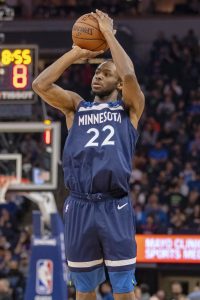 When a team overhauls its front office, that doesn’t necessarily mean a roster overhaul will follow. But executives generally have stronger attachments to players that they’ve drafted, signed, or traded for than the ones they’ve inherited.
When a team overhauls its front office, that doesn’t necessarily mean a roster overhaul will follow. But executives generally have stronger attachments to players that they’ve drafted, signed, or traded for than the ones they’ve inherited.
This will be the first time Rosas has decision-making power in an NBA front office. While his long stint in Houston’s front office is somewhat instructive, we’ll be learning for the first time in the next year or two what sort of players he likes, and which Timberwolves players fit that bill.
The front office changes in Minnesota are unlikely to impact someone like Karl-Anthony Towns, who would be a franchise cornerstone no matter who is running the team. But how invested will Rosas be in players like Robert Covington and Dario Saric? They were the key assets the team received in return for Butler last fall and would still have positive trade value if Rosas isn’t attached to them. Assuming he likes them, they could become long-term building blocks for the Timberwolves.
Rosas’ evaluation of the players on his new roster will impact young prospects under contract (like Josh Okogie and Keita Bates-Diop) and veteran free agents (such as Derrick Rose and Taj Gibson) alike, so it should be an interesting summer in Minnesota as Rosas gets his first opportunity to oversee a series of roster moves.
Five Key Offseason Questions: Charlotte Hornets
Since being reborn in 2004 as the Bobcats, Charlotte’s NBA team – now the Hornets – has failed to win more than 48 games or advance past the first round of the postseason. Improbably, the 2018/19 season represented the first time during that stretch that the Hornets had even finished higher than third place in the Southeast. Unfortunately for Charlotte, that spoke more to the weakness of the division than the strength of the Hornets, as the team still missed the playoffs for a third straight season.
Entering the 2019 offseason, the Hornets find themselves at a crossroads. Given the organization’s struggles in recent years – and its inability to build a legit contender over the last 15 seasons – it might be time to blow things up and attempt another rebuild. However, it remains to be seen if ownership and management are ready to go down that road.
Here are five key questions facing the franchise this summer:
1. Is this the end of the Kemba Walker era in Charlotte?
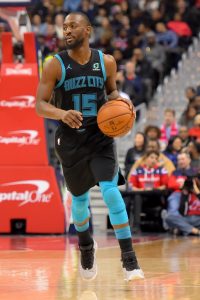 Walker was the subject of trade rumors leading up to the 2018 trade deadline, but the Hornets overhauled their front office shortly thereafter and talk of dealing Kemba died down. He and the team said all the right things, with both sides expressing interest in a long-term union. There’s no reason to think that either side was lying or that that interest doesn’t still exist, but it’s hard to make the case that this remains the right fit.
Walker was the subject of trade rumors leading up to the 2018 trade deadline, but the Hornets overhauled their front office shortly thereafter and talk of dealing Kemba died down. He and the team said all the right things, with both sides expressing interest in a long-term union. There’s no reason to think that either side was lying or that that interest doesn’t still exist, but it’s hard to make the case that this remains the right fit.
Walker has long been the face of the Hornets, but he’s about to become eligible for a five-year contract worth up to nearly $190MM — or $221MM, if he earns All-NBA honors. Charlotte has had a hard enough time building around Walker while he has been on one of the most team-friendly contracts in the NBA ($12MM annually). Paying him upwards of three times that much as he prepares to enter his age-29 season could hamstring the team’s financial flexibility for the rest of Kemba’s prime.
As for Walker, he was probably miscast as a franchise player in Charlotte, but he has done all he could over the last eight years to try to turn the Hornets into a winner. It hasn’t worked out, and if he wants to look elsewhere for a better situation for contending, no one would blame him. The Charlotte Observer’s editorial board even encouraged the Hornets to let him do just that.
It will be fascinating to see how this situation plays out in July. Some ill-advised investments elsewhere on their roster have put the Hornets in a sort of no-win situation here. If they re-sign Walker, they won’t have the cap flexibility necessary to get him the help he needs. But if they let him walk, they may not have enough attractive assets on hand to jump-start their rebuild. It could be years before they sniff the postseason again.
Five Key Offseason Questions: Memphis Grizzlies
The Grizzlies made the postseason for seven years in a row before a dismal 2017/18 season in which they won just 22 games. The team hoped that nosedive in the standings would be short-lived and entered the 2018/19 campaign aiming to return to the playoffs.
While Memphis rebounded to some extent, it wasn’t enough. After a 33-win showing this season, Marc Gasol has been traded to the Raptors and there’s a chance that Mike Conley will follow him out of town in the not-too-distant future.
The Grizzlies never advanced further than the Western Conference Finals with Conley and Gasol as their centerpieces. With that era coming to an end, new cornerstones Jaren Jackson and – barring a draft-day surprise – Ja Morant will be tasked with helping the organization get back to contention in the coming years.
Here are five key questions facing the franchise this summer:
1. Will the Grizzlies trade Mike Conley?
This year’s draft lottery results altered the outlook of the Grizzlies’ offseason. Halfway through the announcement of those results, we knew that the Lakers had jumped into the top four from No. 11, and it looked like the Grizzlies – who were No. 8 in the lottery standings – might not even have a first-round pick at all, since their top-eight protected first-rounder was owed to the Celtics.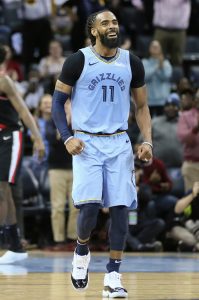
Instead of landing at No. 9 though, that selection moved all the way up to No. 2. Not only do the Grizzlies still have their pick, but they’re now in great position to draft Morant, the Murray State point guard who appears to have emerged as the clear-cut top prospect behind Zion Williamson in the 2019 draft class.
With over a month until draft day, there are still a number of directions the Grizzlies could go with that pick, including trading down or choosing R.J. Barrett over Morant. But early reports suggest they’re “locked in” on Morant, so we’ll assume that’s the case. What happens with Conley now?
Having lost his longtime running mate Gasol earlier this season, Conley seemed resigned to the fact that his time in Memphis would soon be up too, and there are no shortage of possible trade partners for the Grizzlies. The Jazz, Pistons, and Pacers were said to be in the mix for the veteran at the trade deadline, and the Heat and Mavericks are among the other clubs cited as potential suitors.
If the Grizzlies favor a high draft pick, the Heat (No. 13) and Mavericks (No. 15) could be the best matches in that group. On the other hand, if they don’t get an offer to their liking, hanging onto Conley wouldn’t be the worst outcome. He’d be a great mentor for Morant, and Memphis could revisit the trade market before 2020’s deadline.
Based on the success Conley had last season, his stock may never be higher than it is right now, but the Grizzlies shouldn’t simply take whatever they can get for him if the offers this summer are underwhelming.
Five Key Offseason Questions: Chicago Bulls
The Bulls entered the 2018/19 season hoping to take the sort of steps forward that fellow rebuilding teams like the Kings and Hawks did. Instead, the team got off to a slow start, fired head coach Fred Hoiberg, and installed Jim Boylen in his place en route to a 22-60 finish.
Having doubled down on Boylen with a multiyear contract extension, the Bulls will enter the 2019/20 campaign counting on another year of prospect development – and Boylen’s bond with his players – to begin translating to on-court success.
Here are five key questions facing the franchise this summer:
1. How will the Bulls address their point guard position?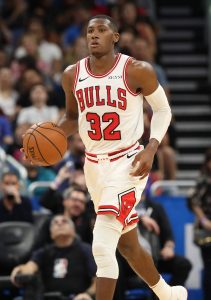
Kris Dunn was one of the key components of the trade that sent Jimmy Butler from Chicago to Minnesota in 2017, but unlike the two other players the Bulls acquired in that swap – Zach LaVine and Lauri Markkanen – Dunn hasn’t established himself as a crucial piece of the team’s future.
After a pair of up-and-down seasons in Chicago, Dunn will at the very least find himself facing competition for his starting point guard job this fall, if he’s not usurped outright by a newcomer. It’ll be a big offseason for the former No. 5 overall pick, who will be extension-eligible for the first time.
With about $20MM in projected cap room at their disposal, the Bulls have the flexibility to pursue a veteran on the free agent market to address the point guard spot. They won’t be in play for Kyrie Irving, Kemba Walker, or D’Angelo Russell, and investing big money in a second-tier restricted free agent like Terry Rozier may be ill-advised, but there are a number of options available.
All the way back in January, one report identified Ricky Rubio and Darren Collison as two free-agents-to-be who will be of interest to the Bulls. Collison’s teammate Cory Joseph could be another option, as could Chicago native Patrick Beverley.
Two of the more intriguing players to watch on this front are Derrick Rose and Rajon Rondo — Rose, is of course a former Bulls MVP, while Rondo was well-liked by the team’s young players during his lone year in Chicago. A reunion with either player might not be out of the question.
Of course, the Bulls hold the No. 7 overall pick in the draft and could use it to draft a point guard. However, Ja Morant appears likely to come off the board at No. 2, and Darius Garland may not be available for Chicago either. After those two prospects, there are probably no true point guards worth considering that high in the draft.
Five Key Offseason Questions: Sacramento Kings
The Kings have the NBA’s longest postseason drought, having not appeared in the playoffs since 2006. Still, while they were unable to snap that streak in 2018/19, it represented the team’s most promising season in years — in fact, Sacramento’s 39-43 record was its best mark since that ’05/06 campaign.
While breakout years by young building blocks like De’Aaron Fox and Buddy Hield bode well for the Kings going forward, it’s not clear that the dysfunction plaguing Sacramento for years is totally behind the organization.
Here are five key questions facing the franchise this summer:
1. Did the franchise make the right call hiring Luke Walton?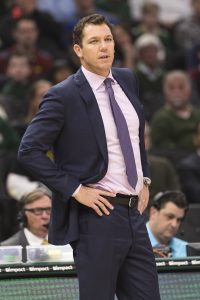
That dysfunction I mentioned in the introduction surfaced during the 2018/19 season in large part due to tension between head coach Dave Joerger and the front office — specifically assistant GM Brandon Williams. There was a disconnect between the two sides on how much playing time veterans and prospects should receive, and Joerger made some comments hinting that he might not have been entirely on board with the Kings’ decision to draft Marvin Bagley over Luka Doncic.
By parting ways with both Joerger and Williams, the Kings made an effort to remove that potential discord from the equation entirely going forward. They quickly replaced Joerger with Luke Walton, a coach who received some praise for his work with young players during his early days with the Lakers.
However, the Kings perhaps moved too quickly to lock up Walton. Just a week after they announced his hiring, word broke that he was being sued and accused of sexual assault.
The Kings now found themselves in a tricky situation. Hiring Walton and then dismissing him before he coaches a single game would be a bad look for the franchise, but it would arguably be an even worse look if the team retains him despite finding the claims against him to be credible.
Before determining whether he’s the right fit on the court, the Kings will have to do their best to determine whether there’s truth to the off-court allegations against Walton, and whether that would disqualify him from keeping the job. The Kings and the NBA are currently investigating the allegations.
Five Key Offseason Questions: Phoenix Suns
It looked like the Suns might be on the upswing after they lucked into the No. 1 pick in the 2018 draft, then lured a coveted two-way forward (Trevor Ariza) away from the 65-win Rockets during free agency. However, things took an abrupt downward turn from there.
Team owner Robert Sarver‘s patience with GM Ryan McDonough ran out when Phoenix was unable to land a starting-caliber point guard in the offseason, prompting the club to fire McDonough right before the regular season began. Despite aspirations of postseason contention, the Suns spent virtually season in the basement of the Western Conference, selling off veterans like Ariza when it became clear that the playoffs were a pipe dream. To top it all off, first-year head coach Igor Kokoskov got his walking papers at season’s end.
With a new permanent GM (James Jones) and head coach (Monty Williams) now in place, there’s some optimism that this duo can finally be the winning combination for the Suns. But after losing at least 58 games for four straight seasons and not appearing in the playoffs since 2010, the team remains in prove-it mode.
Here are five key questions facing the franchise this summer:
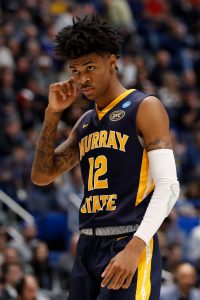 1. Will they acquire a starting point guard this year?
1. Will they acquire a starting point guard this year?
The days of Goran Dragic, Eric Bledsoe, and Isaiah Thomas vying for minutes in Phoenix are long gone. The team’s current point guard depth chart, which features 2018 draftees De’Anthony Melton and Elie Okobo and combo guard Tyler Johnson, is… well, a little thinner.
Unlike last year, the Suns are unlikely to have any cap room at their disposal during the 2019 offseason, which will limit their ability to add an impact player at the position. Barring major cost-cutting moves, it’s hard to imagine the team being able to make a play for a young point guard like D’Angelo Russell or Terry Rozier, both of whom will be restricted free agents.
Second-tier RFAs like Delon Wright or Tyus Jones could be in Phoenix’s price range, but those players have yet to show they can be reliable starters. On the unrestricted market, veterans like Patrick Beverley, Darren Collison, Cory Joseph, Rajon Rondo, and Ricky Rubio may be realistic targets for the Suns if they don’t receive other offers that exceed the mid-level.
Of course, the draft would provide the simplest path to securing a long-term answer at point guard, but the Suns will need some lottery luck to be in a position to snag Murray State’s Ja Morant, who looks like the consensus No. 2 pick in this year’s class. Although they finished in a tie for the league’s second-worst record, the Suns only have a 27.4% chance to land a top-two pick, thanks to the NBA’s new lottery format.
If the Suns can’t get Morant, Vanderbilt’s Darius Garland could be a viable fallback option — he’s ranked fourth among this year’s prospects on ESPN’s big board, and other teams near the top of the lottery, like the Cavaliers and Hawks, have already used lottery picks on point guards in recent years, making them less-likely suitors for someone like Garland.
Five Key Offseason Questions: Atlanta Hawks
The Hawks entered the 2018/19 season facing some major questions. Did they pick the right head coach when they hired Lloyd Pierce to replace Mike Budenholzer? Was it the right choice to give up on Dennis Schroder? Did they make a mistake passing on an opportunity to draft Luka Doncic by moving down for Trae Young?
While it’s probably premature to say that the team’s ’18/19 showing definitively answered all those questions, they’re at least much less pressing heading into the 2019 offseason. Pierce had a solid first year as the young, run-and-gun Hawks began to form their own identity. And Atlanta didn’t miss Schroder as Young gave Doncic a serious run for Rookie of the Year honors.
There’s still a long way to go in the rebuild, but the Hawks certainly seem pointed in the right direction. Now, they have the opportunity to take another step or two toward contention with this offseason’s moves.
Here are five key questions facing the franchise this summer:
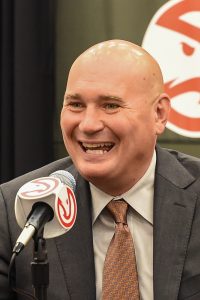 1. How aggressive will the Hawks be in free agency?
1. How aggressive will the Hawks be in free agency?
As we outlined in our look at Atlanta’s cap situation, the team can expect to have over $40MM in cap room at its disposal this summer. That’s more than enough to sign… well, any free agent available.
It’s probably not realistic to expect a star like Kevin Durant or Kawhi Leonard to choose the Hawks in free agency, but a February report indicated that the franchise planned to be aggressive in pursuing that sort of player in the hopes of at least getting a meeting. With a young nucleus already in place, along with an upgraded arena and practice facility, the Hawks could make a decent pitch.
More recently though, general manager Travis Schlenk suggested that the Hawks are more likely to take a similar approach to free agency that they did a year ago, waiting out the market and looking for discounts in the second or third wave of signings.
Does that mean that Atlanta recognizes it won’t get an audience with those top-tier players? Or does Schlenk simply believe it’s too early in the rebuilding process to attempt that sort of splash? Either way, at this point, it would be surprising if the Hawks pursue a star free agent, and even more surprising if they land one.
Five Key Offseason Questions: Dallas Mavericks
After making the playoffs 15 of 16 times from 2001-16, the Mavericks have now missed out on the postseason for three straight years, failing to surpass 33 wins in a single season during that stretch.
Having tried in vain to build one more contending team during Dirk Nowitzki‘s twilight years, the Mavs switched gears in 2018/19 and began looking ahead to the future. That meant moving up in the draft to nab potential franchise player Luka Doncic and then surrendering a few more assets – and taking on some unwanted contracts – to acquire a potential long-term running mate for Doncic (Kristaps Porzingis) at the trade deadline.
The Mavs still have plenty of work to do on the rest of their roster, but with a pair of potential stars in the mix, the organization no longer feels like it’s treading water in the same way it did during many of Nowitzki’s final few seasons.
Here are five key questions facing the franchise this summer:
1. What will Kristaps Porzingis’ new contract look like?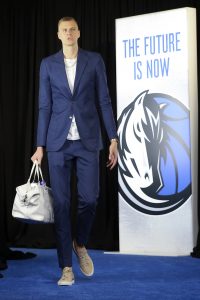
A healthy, scandal-free version of Porzingis would likely receive a maximum salary contract from just about any team capable of offering him one as a restricted free agent. That isn’t the version the Mavericks have though.
A torn ACL has sidelined Porzingis for nearly a season and a half. He hasn’t appeared in an NBA game since February 6, 2018, and it’s not as if he was a paragon of health before that injury — he missed 10 games in his rookie year and 16 more in his sophomore season. There’s no indication that he won’t be back to 100% for the start of the 2019/20 campaign, but that injury history is still concerning for a 7’3″ big man.
On top of that, Porzingis is facing a rape accusation related to an encounter that allegedly occurred during his time with the Knicks. The timeline for that case remains unclear, and the Mavs will have to be extra cautious as they navigate the situation after dealing with allegations of sexual misconduct within their workplace a year ago.
While it’s hard to predict how those allegations will impact contract negotiations this summer, Joel Embiid‘s deal with the Sixers could at least provide a framework for how to handle Porzingis’ injury history.
Embiid’s five-year, maximum salary extension with Philadelphia was worth the 25% max, and could have increased to the 30% max if he had earned First Team All-NBA honors in 2018. However, the deal also contained language that would have made future salaries non-guaranteed if Embiid suffered another major injury related to one of his previous health problems. So far, that deal has worked out for both sides, so perhaps the Mavs and Porzingis will explore a similar arrangement.
Five Key Offseason Questions: Cleveland Cavaliers
No team dropped off more significantly from 2017/18 to 2018/19 than the Cavaliers, who went from winning 50 regular season games and three playoff series to posting a dismal 19-63 mark and firing their head coach.
That drop-off was to be expected — no other team lost a player of LeBron James‘ caliber last summer, after all. Still, it was a jarring reminder that the post-LeBron era in Cleveland will be a challenging one, as the roster James left behind will have to be retooled – or rebuilt entirely – before it’s capable of contending again.
Here are five key questions facing the franchise this summer:
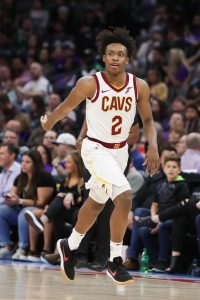 1. What’s the timeline for the Cavaliers’ rebuild?
1. What’s the timeline for the Cavaliers’ rebuild?
Although the Cavaliers jettisoned several of their veteran players in trades over the last year, many high-priced vets remain on the books for one more season. Beyond 2019/20, only Kevin Love and Larry Nance have guaranteed salaries (Cedi Osman will be a restricted free agent that summer, and the club holds options on Collin Sexton and Ante Zizic).
The Cavaliers – whose first-round pick this spring can’t fall lower than No. 6 – could be in position to snag a potential franchise player like Zion Williamson or Ja Morant with some luck in the lottery. Throw in a pretty clean cap sheet starting in 2020 and there’s a blueprint for the team pushing its way back into the playoff picture in the East within the next couple years.
Still, the Cavs’ roster isn’t exactly loaded with young talent yet, and it’s not as if star free agents will be clamoring to sign with Cleveland in the summer of 2020, whether or not the team has cap room. If the organization is serious about building a roster capable of sustained success, it makes more sense to be patient than to try to get back to the postseason as soon as possible.
The Cavs’ long-term priorities will influence their moves this summer. If they recognize that it might be a few more years before legit contention is a possibility again, taking on bad-money contracts that extend beyond the 2019/20 season could be the right approach — even if those deals limit their cap flexibility for an extra year or two.Read more

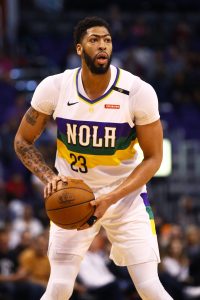 Whether they sign two star free agents or strike out entirely on the open market – or anything in between – the Knicks could make a play for Davis, aiming to secure a long-term commitment from him when he becomes eligible for free agency in 2020.
Whether they sign two star free agents or strike out entirely on the open market – or anything in between – the Knicks could make a play for Davis, aiming to secure a long-term commitment from him when he becomes eligible for free agency in 2020.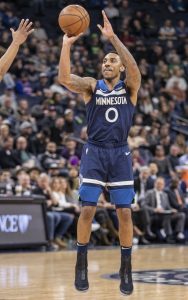
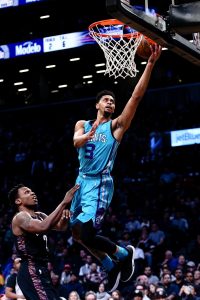
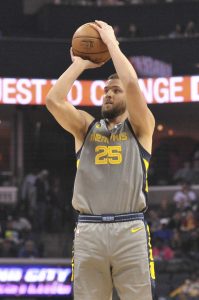 The same probably can’t be said for Parsons, whose time in Memphis has been marred by health issues. Since signing a maximum salary contract in 2016, the veteran forward has appeared in just 95 games for the team, posting the worst per-game stats of his career.
The same probably can’t be said for Parsons, whose time in Memphis has been marred by health issues. Since signing a maximum salary contract in 2016, the veteran forward has appeared in just 95 games for the team, posting the worst per-game stats of his career.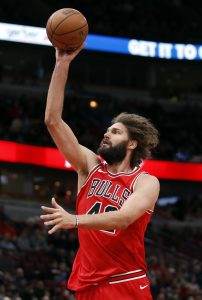 Based on the team’s timeline for contention, it seems like Selden and Arcidiacono are the players more likely to be back, but we shouldn’t entirely rule out a new deal for Lopez. After all, the lottery-bound Bulls could have traded him at the deadline or bought him out before March 1, but opted to keep him around instead. He’s unlikely to earn $14MM+ again, so if the Bulls have some cap room left over, perhaps they’ll explore keeping him in the mix as a veteran leader on a young roster.
Based on the team’s timeline for contention, it seems like Selden and Arcidiacono are the players more likely to be back, but we shouldn’t entirely rule out a new deal for Lopez. After all, the lottery-bound Bulls could have traded him at the deadline or bought him out before March 1, but opted to keep him around instead. He’s unlikely to earn $14MM+ again, so if the Bulls have some cap room left over, perhaps they’ll explore keeping him in the mix as a veteran leader on a young roster.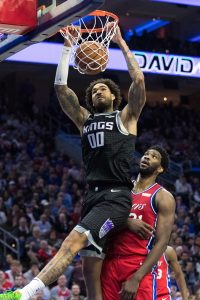 That doesn’t necessarily mean that the Kings are prepared to invest heavily in the 25-year-old center though. It also doesn’t mean he’s eager to return, especially if Sacramento plans on getting young bigs like
That doesn’t necessarily mean that the Kings are prepared to invest heavily in the 25-year-old center though. It also doesn’t mean he’s eager to return, especially if Sacramento plans on getting young bigs like 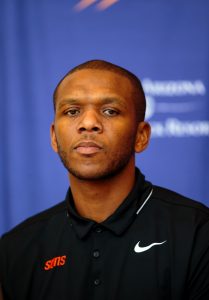 4. How will James Jones’ philosophy affect the team’s direction?
4. How will James Jones’ philosophy affect the team’s direction?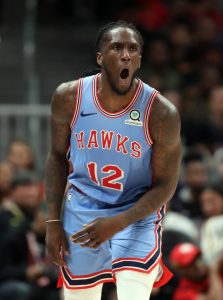 4. Will the Hawks extend
4. Will the Hawks extend 